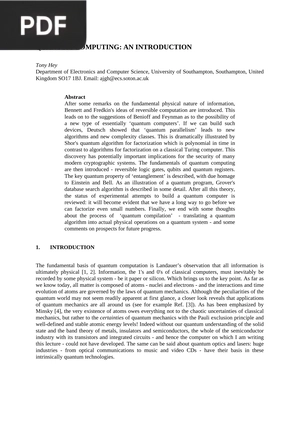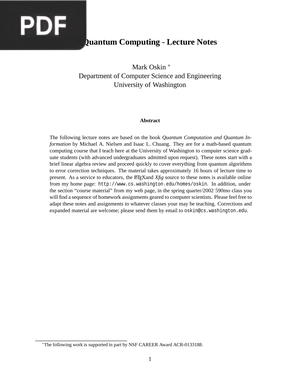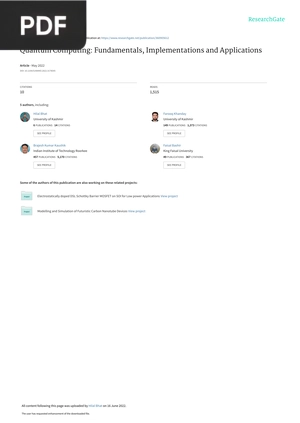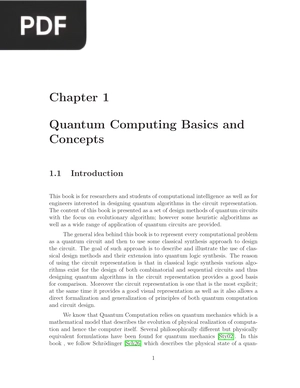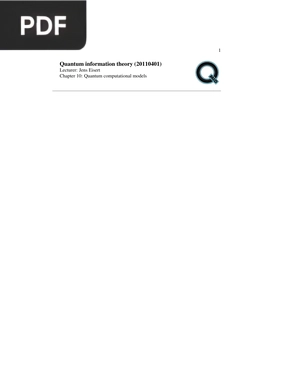Quantum Computing - Lecture Notes
Author: Ronald de Wolf
*Wait a few seconds for the document to load, the time may vary depending on your internet connection. If you prefer, you can download the file by clicking on the link below.
Information
Description: Quantum Computing - Lecture Notes by Ronald de Wolf provides a comprehensive introduction to the field.
Pages: 218
Megabytes: 1.48 MB
This may interest you
Quantum Computing: An Introduction
Extension: PDF | 15 pages
Quantum Computing: An Introduction by Tony Hey is a concise overview of the fundamental principles and early developments in quantum computing. It explains complex concepts like quantum algorithms and entanglement, making it a valuable resource for those exploring this emerging field.
Quantum Computing – Lecture Notes
Extension: PDF | 57 pages
Quantum Computing - Lecture Notes by Mark Oskin provides a concise yet comprehensive introduction to quantum computing principles. Covering topics from linear algebra to quantum algorithms and error correction, it's a valuable resource for computer science students.
Quantum Computing: Fundamentals, Implementations and Applications
Extension: PDF | 18 pages
Quantum Computing: Fundamentals, Implementations and Applications por Hilal Ahmad Bhat, Farooq Ahmad Khanday and others provides a concise overview of quantum computing principles and its evolution, making it accessible to newcomers. The PDF explores diverse physical implementations and potential applications, offering valuable insights into this rapidly advancing field.
Quantum Computing Basics and Concepts
Extension: PDF | 104 pages
Quantum Computing Basics and Concepts by Portland State University is a comprehensive introduction to quantum computing principles. It covers essential topics from quantum mechanics to circuit design, offering a solid foundation for understanding quantum algorithms.
Quantum computational models
Extension: PDF | 12 pages
Quantum computational models by Jens Eisert provides an overview of alternative quantum computing models beyond the circuit model, including adiabatic and measurement-based approaches. It explores their potential for efficient quantum computation and their relationship to quantum algorithms.


